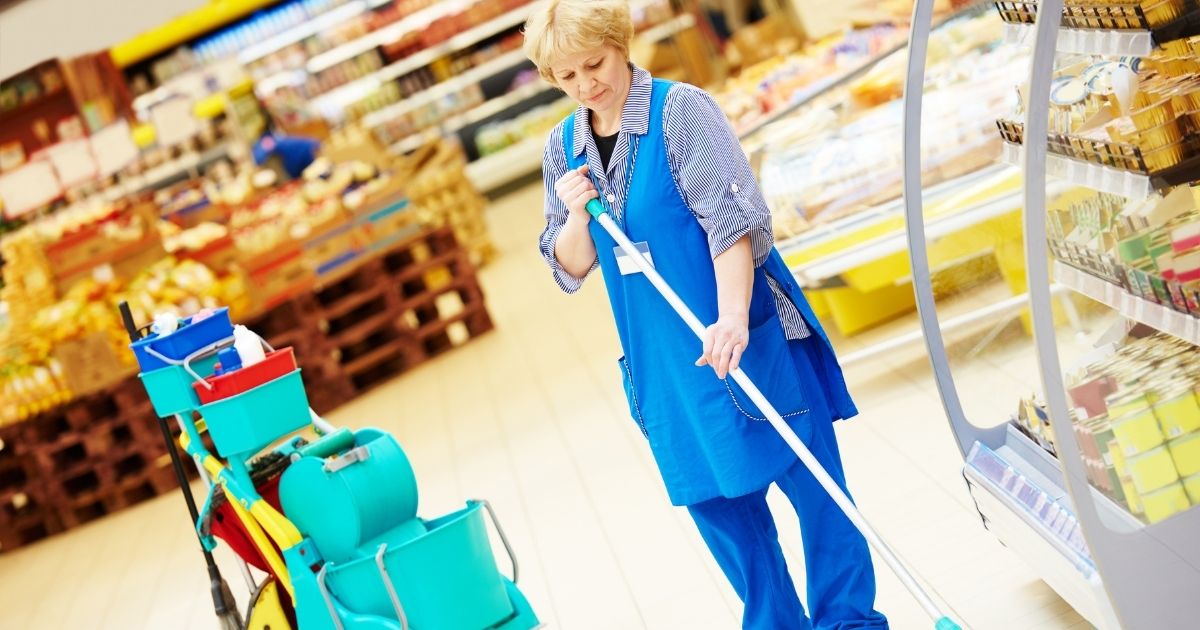Grocery stores are essential, but many slip and fall accidents happen at these locations. When negligent store owners, managers, and workers enable potentially dangerous conditions to persist, they are liable for injuries that result. A property owner is liable for injuries and other damages suffered by visitors. In a grocery store, spills and food items can create slick and dangerous conditions. If left unmaintained, customers can slip and fall.
In order to bring a successful slip and fall claim, it must be proven that the property owner owed the customer a duty of care to correct the situation that led to the slip and fall, and they did not reasonably initiate steps to protect the injured customer. The slip and fall must have occurred due to negligence, and the injured directly resulted from that negligence.
Property owners are required to reasonably maintain their premises to prevent the development of potentially dangerous conditions, like a juice spill on a floor. When that duty of care is violated, the store owner is liable for negligence. It is not a criminal offense, but it is a civil wrong that could be corrected by filing a negligence lawsuit against the property owner. After a slip and fall accident, the injured party should speak to a lawyer to discuss whether or not they have a legal case.
What is the Statute of Limitations in New Jersey?
When a slip and fall accident occurs, a legal clock immediately starts to tick. That clock gives victims up to two years from the date of the accident to initiate legal proceedings. One day beyond the two-year statute of limitations and the entire matter no longer can be settled in court. The statute of limitations applies to more than court actions as well. Many victims of slip and fall accidents handle the matter by allowing the store to file an insurance liability claim to cover the costs.
New Jersey’s statute of limitations says injured parties as well as court plaintiffs have two years from the date of the known injury to file a valid insurance claim. The statute of limitations applies to insurance claims to help thwart potential insurance fraud. It also gives the accused the ability to better defend itself if the matter winds up in court instead.
How can Grocery Store Slip and Fall Accidents be Prevented?
Whenever a foreign substance winds up on a floor, it often creates a hazardous condition that might cause an accident that leads to injuries and minor property damage. Whenever a condition exists that could become dangerous to customers and workers, the grocery store owner has a duty of care to immediately take steps to correct the problem. The first step is to place a warning sign that is highly visible and that clearly cautions customers to be wary of the dangerous condition.
Immediately after placing the warning signs in an appropriate location, workers should take whatever steps are needed to clean up the mess. The sooner store workers can clean up a spill and restore the flooring surface to a reasonably safe condition, the better that store has managed its duty of care.
If the store does not follow its duty of care and ignores the problem, they are in violation. That means the store is liable for the negligence of its staff that allowed a known and potentially dangerous condition to persist until it caused injuries to one or more customers.
What is Contributory Negligence?
Store owners, managers, and workers could be proven responsible for causing a slip and fall accident. However, customers can also be responsible. Whenever an abnormal condition exists, like a spill on a grocery store floor, customers as well as workers have a duty of care to prevent unnecessary accidents.
For example, suppose a worker has placed a caution sign to temporarily warn customers of a potentially dangerous condition. If the worker reasonably and appropriately located caution signs and took reasonable steps to correct a problem, then they followed the duty of care and the store is not negligent. However, a customer could be liable for ignoring reasonably placed caution signs and acted in a manner that caused the slip and fall accident to occur. A customer cannot see a dangerous situation and then unreasonably act to cause their injuries.
When a customer acts recklessly and an injury occurs, the legal doctrine of contributory negligence comes into play. Contributory negligence says the injured party has a duty of care as much as the property owner. This could reduce or eliminate potential settlements if the customer is partly responsible for their accident. For this reason, it is important to speak to a lawyer after a slip and fall accident. A lawyer can protect their client’s rights and help prove that the property owner acted negligently.
Burlington County Slip and Fall Attorneys at the Law Office of David S. Rochman Help Clients Navigate Grocery Store Slip and Fall Accident Claims
Grocery store owners and their staff have a clear duty of care to protect customers. If you fell at a grocery store and suffered injuries, our experienced Burlington County slip and fall attorneys at the Law Office of David S. Rochman can help you to present the best possible case. Call us at 856-751-2345 or contact us online to schedule a free initial consultation. Located in Mount Laurel, New Jersey, we serve clients throughout the surrounding areas.


